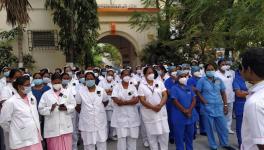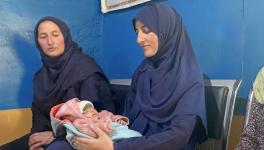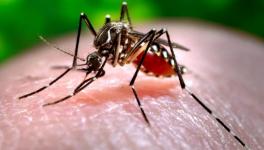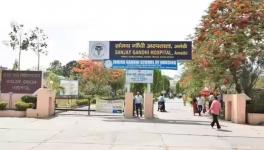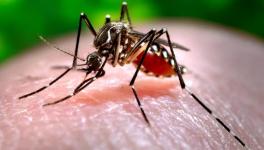Fortis Overcharged Adya’s Family by Over 1700% on Medical Consumables, Finds Regulatory Body
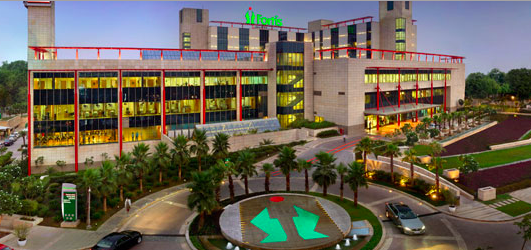
The allegation of overcharging against Gurgaon’s Fortis hospital—made by the bereaved father of 7-year-old Adya Singh who died of dengue in September after spending 15 days at the hospital—has been substantiated by the findings of the National Pharmaceutical Pricing Authority (NPPA).
On 15 December, the drug pricing regulatory agency released a notification revealing that the hospital had made a margin of over 1700% on medical consumables and up to 900% on some medicines that were used.
Even some scheduled drugs, which are under price control, were overcharged by the corporate hospital by more than 300%.
The findings should not come as a surprise given the bill of Rs 16 lakh that the Fortis Memorial Research Institute handed over to Jayant Singh, Adya’s father. The 20-page itemised bill included consumables like 1,600 gloves and 660 syringes.
As it turns out, some brands of disposable syringes that the hospital procured for Rs 15.29 were billed at Rs200 to Adya’s family. The inquiry found that the margin on syringes alone ranged between 1208% to 500%, as per news reports.
Similarly, certain sterile surgical gloves bought for Rs 9.86 were billed at Rs 75.
Of the 41 non-scheduled medicines, the NPPA found, 20 were overcharged by 111% to 919%. As for the 39 scheduled drugs, Fortis made margins ranging from 18% to 343% in 36.
As per the Drug (Prices Control) Order 2013, drug retailers can charge a margin of only 16% on scheduled drugs.
Oxygen facemasks too were sold by the hospital at Rs 190 even though the hospital bought them for Rs 24.68. Similarly, bed bath towels and wipes which were bought for Rs 33.60 were sold to the family for around Rs 350, a margin of 942%. A blood transfusion set bought for Rs 13 was sold at Rs 126.
However, Fortis rejected the charges of overpricing in medicines.
“Fortis Healthcare does not charge any drug or consumables above the printed MRP and there is No Violation of Drug Price Control Order. It should also be noted that our end price to the patient is very much in line with what other private hospitals in India charge,” it said in a statement.
The NPPA had initiated the investigation last month, following the allegation of overcharging and negligence made by Jayant Singh, which attracted media attention and raised a public outcry. The agency had sought all related data from Fortis, including copies of the bills, names of the medicines administered, details of quantity and the prices charged.
“NPPA shall be taking necessary follow up action as per existing law and within its jurisdiction,” said the NPPA notification.
On 6 December, an inquiry committee set up by the Haryana government to probe into the death Adya found Fortis guilty of “grave negligence, lapse, and unethical and unlawful act”.
In fact, Adya’s father Jayant Singh had even alleged that Fortis offered him money to end the campaign against the hospital and not pursue legal action.
The report of the NPPA only confirms the profiteering and predatory ways of private hospitals.
Fortis is among the largest corporate hospital chains in India, with a market capitalisation (the market value of its outstanding shares) of around Rs 7,800 crore.
These enormous margins at the cost of patients and their families seem a fairly prevalent practice among private, particularly among corporate, hospitals.
In a separate investigation, the Competition Commission of India recently found that another branch of the Max chain at Patparganj, Delhi, made “unfair” and “excessive” profits of 276% and 527% on sale of disposable syringes to admitted patients in 2015-16. The CCI ordered the probe in 2015 acting on a consumer complaint.
These huge margins are further evidence that private hospitals view healthcare essentially as a market. They are in it to make profit.
In February, after the NPPA slashed the prices of coronary stents by up to 85%, the Bengaluru-headquartered hospital chain Narayana Hrudayalaya decided to increase its charges for the angioplasty procedure to compensate for the reduction in profits.
Coupled with abysmally low public expenditure by the government, which hovers around 1.4% of the GDP, these profiteering practices are increasingly making quality healthcare unaffordable.
As a report recently found, 50.6 million people were pushed below the poverty line due to out-of-pocket spending on healthcare between 2004 and 2014.
“There has been little interest and attempt on the part of the government to put in regulations. And even when they try, there is a massive pushback from the private medical industry and its lobbies. Most states do have some form of regulation or the other, on paper, but none are really functional,” Dr Amit Sengupta of the People’s Health Movement had told Newsclick earlier.
He said that especially in corporate hospitals, doctors were under immense pressure to become part of these malpractices, including performing unnecessary procedures as they had quotas to meet.
Get the latest reports & analysis with people's perspective on Protests, movements & deep analytical videos, discussions of the current affairs in your Telegram app. Subscribe to NewsClick's Telegram channel & get Real-Time updates on stories, as they get published on our website.










